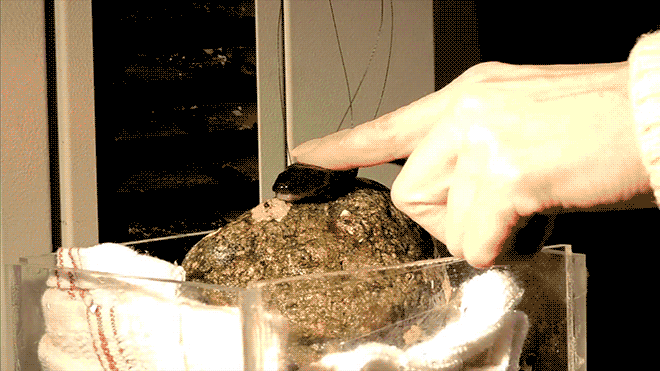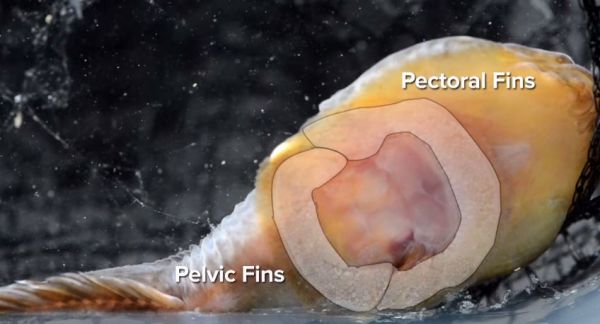This is the
northern clingfish (
Gobiesox maeandricus).
It's a fish common to the Pacific coast of North America. It's called a
clingfish because it has a large sucker on the bottom of its body. This
sucker can attach firmly to rough, slimy surfaces and withstand a lot
of pressure. The image above shows a 0.8 ounce clingfish attached to a 6
pound rock. Under the right conditions, a nothern clingfish can pull
150 times its own bodyweight.
The
sucker consists the pectoral and pelvic fins of the clingfish, which
are fused together. They're roughly textured on the edges with
microscopic hairs which provide friction between the fish and the object
it's attached to.
The northern clingfish puts its sucker to good use. It uses it to stick to rocks in rough tidal areas and to attack mollusks.
Dr. Adam Summers,
a professor of biomechanics at the University of Washington, says that
this type of sucker would not be useful in dry conditions. But wherever
it's wet, it's perfect. Someday, humans may be able to manufacture
suction cups based on that of the northern clingfish. These would be
ideal for climbing in wet walls, such as up a waterfall.



No comments:
Post a Comment